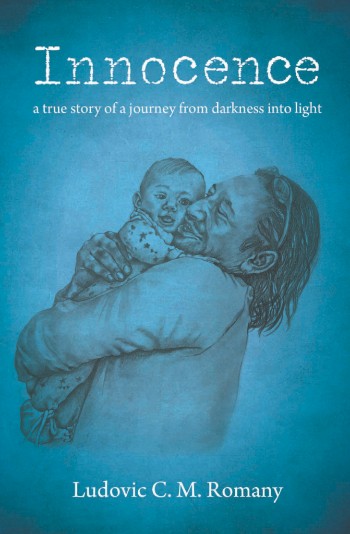
Ludovic C.M. Romany
I fully support the premise of this biography. It highlights the appalling levels of abuse towards children particularly but also the violence prevalent in New Zealand society, the terrible levels of domestic abuse and the increasing abuse by women.
The need for us to confront the terrors forced on the innocent by those who are meant to love and protect is paramount. For anyone to speak up, to challenge those who committed the abuse, to face scepticism and disbelief from family and friends takes such courage. And for Wi Peepe, not only was his childhood one of severe neglect, abuse and crushing poverty, there were the later added struggles with substance abuse as well.
The author, Ludovic C.M. Romany begins with a foreword making what seems to be a vital explanation about his first meeting with the seven year old beggar, Wi Peepe. There was drama and darkness and this section left me expecting the resolution of their next meeting, when that first sad introduction would, years later, be acknowledged as a kind of powerful eureka moment – ‘That poor, lost starveling was you?’ Yet this never happened and for me this left a sizeable gap in their story.
Belief is vitally important for anyone who has been abused and I wanted to believe everything I read. If even a third of what was stated happened to this man, then it would be terrible enough. Yet, things jarred.
Another problem for me was that Wi chose to write in the first person, using the child he was as the story-teller. This is a difficult premise and it didn’t work for his young years. Too often the child of pre-school to mid-teens was given the maturity and understanding of adult hindsight. For example: ‘An old adage came to mind, ‘That out of every adversity comes some good.’ This from an eleven year old with the barest of education.
I have an issue with the section given to the story of Wi’s capture and taming of a wild horse. Would an underfed, starving child of eleven have the strength to capture a wild horse? Would he have managed to control this bolting, terrified, unsaddled, unbridled creature? Would he have trained it to obey his hand commands, all in less than one hour? From the moment I read this I was unsure, and spoke with someone who has a lifetime of equestrian training and breaking behind her. The answer was no. If Wi did indeed manage this feat, I offer my sincerest apologies. But, I’m sorry, I have my doubts.
There were strange contradictions.
Pg 86: ‘No one would believe me if I told them what Mum had done to me, or what Jimmy had done, for that matter.’ Yet time and again family members knew the character of the various abusers, at times had witnessed their terrible violence.
Pg 78: Uncle Bill: ‘He’ll end up killing someone soon and that’ll be it.’
I appreciate there are cultural differences at play, with a Pakeha reader of these Maori relationships, but surely loving grandparents or aunt and uncles as Wi had, would have moved heaven and earth to keep this child safe? They knew of the abuse but time and again they chose to not intervene to protect a child they loved. Then again, maybe that merely highlights another frightening aspect of domestic abuse. The enabling.
Pg 111/112 ‘The authorities knew of the difficulties and abuse in our home environment. They knew about the broken bones and the whippings.’ Yet there was no one to take Wi out of that environment until he was in his mid-teens? When Wi did experience great positivity from authorities, being sent to a Health Camp, given to loving foster care I’m unsure why he didn’t contact them again when he was returned to the people who abused him. I appreciate people in traumatic situations don’t and can’t always think straight yet Wi makes much of his maturity, his street-smarts, his survival skills, his ability to think clearly through these times. Surely with a beacon to walk towards and acknowledged arms to care, highly tuned survival skills would have led him where he would be safe?
There are obviously plenty of things that need to be addressed in Pakeha and Maori society regarding drinking, violence and abuse, both physical and sexual. Wi bravely brings scenes to life that reinforce the images and the kind of people New Zealand was first introduced to in mainstream media through Once Were Warriors. God help the children growing up to perpetuate a life of abuse and fear through knowing no other life and God thank those like Wi who saw and experienced the worst yet came through with their humanity and ability to love and nurture.
If I have my doubts about some things portrayed, I don’t doubt that awful, unforgivable things happened to a child who should only have known love.
Kia kaha.
Author: Ludovic C M Romany
Publisher: Copy Press Books
ISBN: 9780995104006
RRP: $34.99
Available: bookshops

 RSS Feed
RSS Feed
